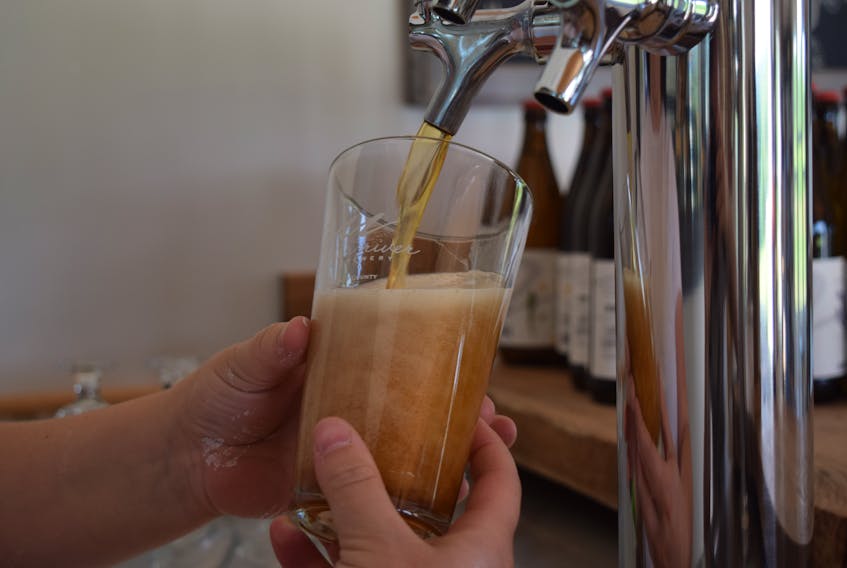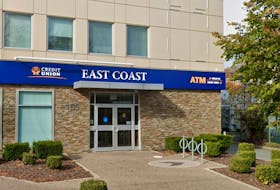SHELBURNE, NS - While prohibition-era rules and heavy taxes are easing up, the rules for craft beer brewers in Nova Scotia are still not perfect as brewers here face taxes other Maritime brewers don’t.
Emily Tipton is the co-founder of Boxing Rock Brewing Co. in Shelburne and the president of the Craft Brewers Association of Nova Scotia. She says while some red tape should come with running a business, fees like the retail sales mark-up allocation, or RSMA, should be paid by all Canadian brewers on their beer sales in Nova Scotia.
“Nova Scotia breweries are at a disadvantage in our own market. It certainly has a price impact, which is a factor for certain bars making their decision on what to buy,” she says.
‘Charge this tax from everyone'
Small victories like the province’s tiered excise tax system and NSLC’s lowering the RSMA fee brewers pay from 50 cents per litre of beer produced to five per cent of cost have helped the industry boom over the past five years, according to Tipton.
But what isn't helping, she says, is the RSMA fee is charged only to Nova Scotia brewers - and not those from New Brunswick or Prince Edward Island.

This taxing system traces its origins 10 years back, to the creation of the Maritime Beer Accord written for Moosehead and Labatt’s. Signed by Nova Scotia, New Brunswick and Prince Edward Island, the agreement allows breweries to brew beer outside Nova Scotia but sell it here while avoiding extra tax.
The accord became public two years ago, detailing how all breweries from each of the three provinces can do things like sell kegs directly to bars without having to pass through the NSLC.
This is where the RSMA tax issue comes in, says Tipton. Even when selling directly to retailers, Nova Scotia brewers pay five per cent on all sales, while New Brunswick and Prince Edward Island brewers do not.
And this, she says, is a piece of red tape her industry could do without.
“This accord wasn’t written for us – I get that. I also understand provincial trade is not easy to solve. But the NSLC, at the very least, could say, ‘sure, we will charge this tax from everyone,’” she says.
READ MORE:
- Crafting a new future for beer in the Annapolis Valley
- ‘It’s a labour of love’: Pioneering brewer reflects on success at Sea Level in Port Williams
- Head of the class: Ellershouse man passionate about creating the beer behind Schoolhouse Brewery
- ‘From grain to glass’: Horton Ridge Malt and Grain Company adding local flavour to the craft beer business
- From farm to bottle: Sourcing local hops a challenge for Annapolis Valley brewers
- Source your Annapolis Valley craft beer
‘Up against barriers'
This is not the first time the industry has faced barriers, according to Whitney Moran, co-author of East Coast Crafted: The Essential Guide to the Beers, Breweries and Brewpubs of Atlantic Canada.
While it’s an industry that seems to have boomed overnight, the brewing of craft beer had a slow start in Nova Scotia because no support existed outside the small collective of brewpubs that supported each other.
The industry, according to Moran, faced prohibition-era policies that kept the craft breweries from making any real money.
“Today, you look at them and from an outside perspective, you’d think they had a great idea and they must’ve started making money right away. But that wasn’t the case – they were up against barriers in terms of not having support except from each other,” says Moran.
“There were no government incentives – no preferential markup, nothing – and they had to lobby to allow breweries to make a profit.”
This collaborative industry has banned together again, this time under Tipton and the CBANS association. It’s a group that has taken action – having successfully lobbied for RSMA changes in 2016 – and will continue working toward all Maritime breweries being charged the same taxes.
“We’re getting the short end of the stick, and it’s got to change,” says Tipton.









